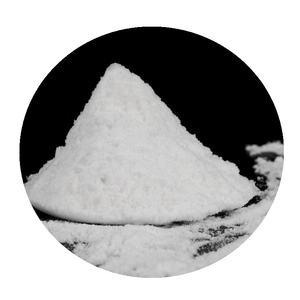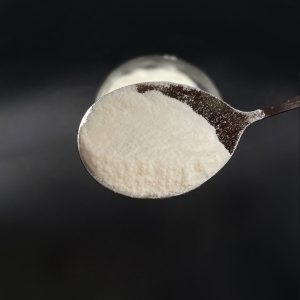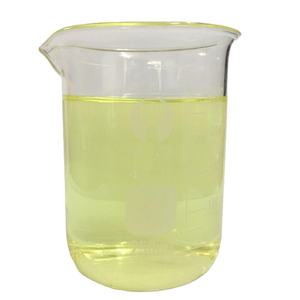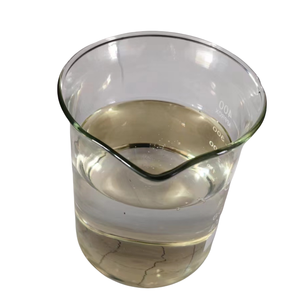Professional and high-quality metal alloys, ceramic products and concrete additives | RBOSCHCO
PRODUCT PARAMETERS
Description
| Sodium Decyl Alcohol Sulphate Properties | |
| Other Names | N/A |
| CAS No. | 142-87-0 |
| Compound Formula | ROSO3Na |
| Molecular Weight | N/A |
| Appearance | Colorless to light yellow transparent liquid |
| Melting Point | N/A |
| Boiling Point | N/A |
| Density | N/A |
| Solubility in H2O | N/A |
| Exact Mass | N/A |
| Sodium Decyl Alcohol Sulphate Health & Safety Information | |
| Signal Word | N/A |
| Hazard Statements | N/A |
| Hazard Codes | N/A |
| Risk Codes | N/A |
| Safety Statements | N/A |
| Transport Information | N/A |
(Sodium decyl alcohol sulphate CAS 142-87-0)
Overview of Sodium Decyl Alcohol Sulphate
Sodium decyl alcohol sulfate is an anionic surfactant known as sodium dodecyl sulfate. It is a sulfate salt formed by the reaction of dodecanol and sulfuric acid, with dual properties of hydrophilicity and oleophility. SDS has a long hydrocarbon chain and a sulfate ion in its chemical structure, which enables it to emulsify and disperse between water and oil.
Sodium decyl alcohol sulfate has many applications in daily life and industrial production. In cleaning products such as detergents, shampoo, and shower gel, SDS can remove oil and dirt, improving cleaning efficiency. In addition, SDS also plays an important role in the fields of cosmetics, paint, coatings, pesticides, etc.
Features of Sodium Decyl Alcohol Sulphate
Efficient surfactant: Sodium decyl alcohol sulfate has excellent surface activity, which can significantly decrease the surface tension of water, thereby enhancing its ability to wet and disperse impurities such as oil and dust.
Good emulsification performance: the long hydrocarbon chain in its structure makes it easy to combine with oil. In contrast, sulfate makes it hydrophilic so that SDS can emulsify the oil-water mixture into a stable lotion.
Strong stability: SDS can maintain stability over a wide pH range and is not easily affected by environmental factors such as temperature and electrolyte.
Easy biodegradation: Compared to some synthetic surfactants, SDS is more easily decomposed by microorganisms in the natural environment, reducing its long-term impact on the environment.
Multi-domain applicability: Due to its unique physical and chemical properties, SDS has been widely used in various fields such as detergents, cosmetics, pharmaceuticals, textiles, etc.
Irritability: Although SDS performs well in many applications, it has a certain degree of irritation to the skin and eyes, so appropriate protective measures must be taken when using it.
Application of Sodium Decyl Alcohol Sulphate
Cleaning agents and detergents: SDS is the main component of many household and industrial cleaning agents, and its efficient cleaning ability makes it an ideal choice for removing grease and stains.

Application of sodium decyl alcohol sulphate
Cosmetics and personal care products: SDS is used as an emulsifier and surfactant in shampoo, bath gel, face cream, and other cosmetics to help stabilize the formula and provide a good feeling of use.

Application of sodium decyl alcohol sulphate
Pharmaceutical industry: In the pharmaceutical process, SDS is commonly used to prepare drug formulations such as emulsions and suspensions to improve the stability and bioavailability of drugs.

Application of sodium decyl alcohol sulphate
Textile industry: SDS is used in the manufacturing and processing textiles to wet, penetrate, and disperse dyes, ensuring that the dyes are evenly distributed on the fibers.

Application of sodium decyl alcohol sulphate
Agricultural applications: In pesticide formulations, SDS is used as a wetting and dispersing agent to help pesticides better adhere to plant surfaces and improve their efficacy.

Application of sodium decyl alcohol sulphate
Laboratory research: In chemical experiments, SDS is often used to prepare lotion, micelles, etc., as an important tool to study the properties and applications of surfactants.

Company Profile
NANOTRUN(www.rboschco.com) is a trusted global chemical material supplier & manufacturer with over 12-year-experience in providing super high-quality chemicals and nanomaterials, including boride powder, nitride powder, graphite powder, sulfide powder, 3D printing powder, etc.
The company has a professional technical department and Quality Supervision Department, a well-equipped laboratory, and equipped with advanced testing equipment and after-sales customer service center.
If you are looking for high-quality sodium decyl alcohol sulphate, please feel free to contact us or click on the needed products to send an inquiry.
Payment Term
L/C, T/T, Western Union, Paypal, Credit Card etc.

Shipment Term
By sea, by air, by express, as customers request.
FAQ
Q1
What is the chemical structure of Sodium Decyl Alcohol Sulphate?
Answer: Sodium Decyl Alcohol Sulfate comprises a long hydrocarbon chain and a sulfate ion, which endows it with dual properties of hydrophilicity and oleophility.
Q2
How is the compatibility of Sodium Decyl Alcohol Sulphate with water?
Answer: Sodium Decyl Alcohol Sulphate has good water solubility and can quickly dissolve and exert its effects in water.
Q3
What is the role of Sodium Decyl Alcohol Sulphate in cosmetics?
Answer: Sodium Decyl Alcohol Sulphate is mainly used as an emulsifier, dispersant, and wetting agent in cosmetics, helping to improve the stability and effectiveness of the product.
Q4
What is the preparation process of Sodium Decyl Alcohol Sulphate?
Answer: The preparation of Sodium Decyl Alcohol Sulfate typically involves reacting dodecanol with sulfuric acid to generate sulfate salts, which are then processed to obtain the final product.
Q5
What are the advantages of Sodium Decyl Alcohol Sulphate compared to other surfactants?
Answer: Compared with other surfactants, Sodium Decyl Alcohol Sulphate has excellent surface activity, good emulsifying performance, and strong stability, making it widely used in multiple fields.







